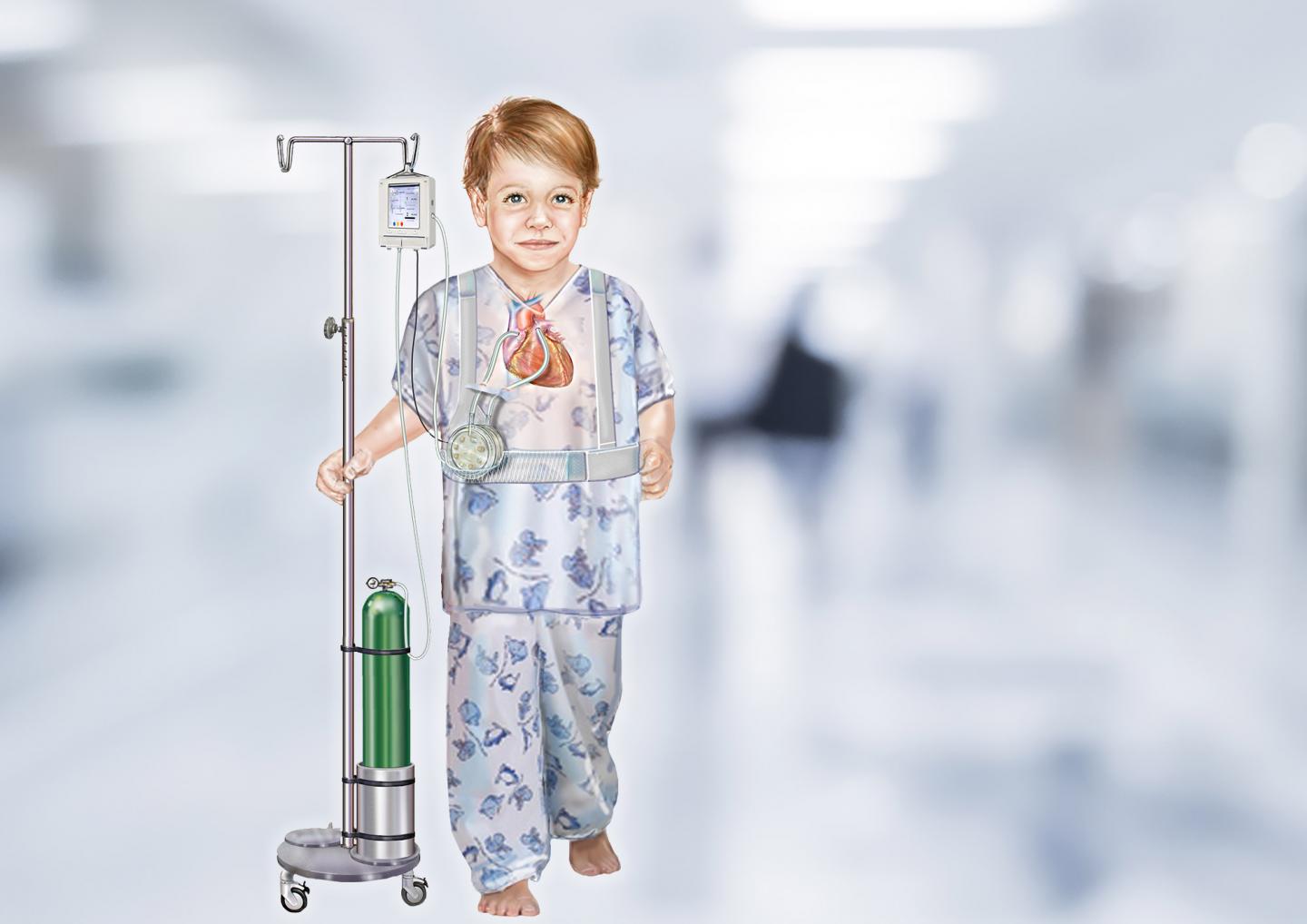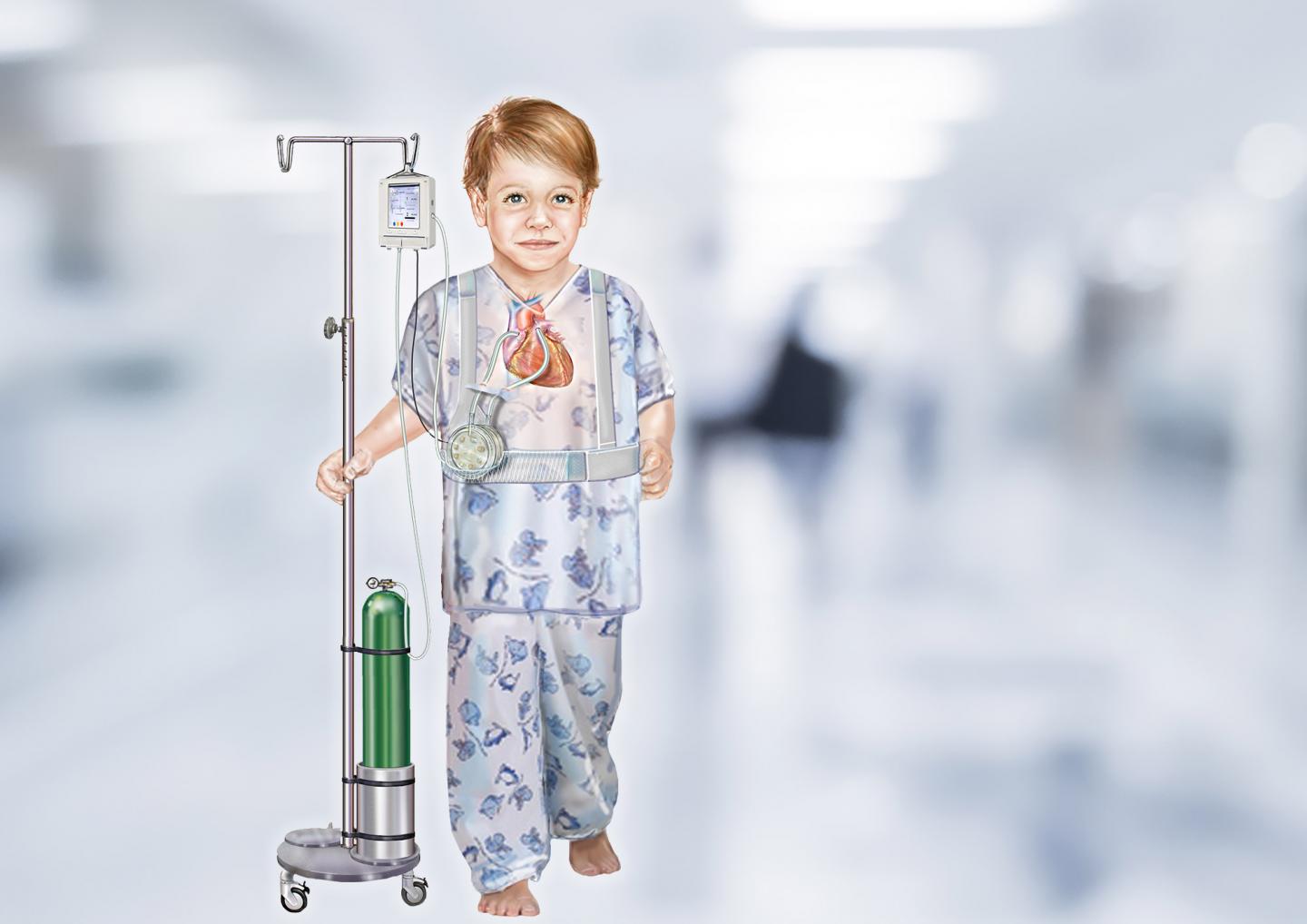
Credit: Randal McKenzie Illustrations
PITTSBURGH (February 6, 2017) … Acute and chronic lung diseases are the most life-threatening causes of hospitalization and death among young children. This is especially true for children suffering from cystic fibrosis. The path to recovery often leads to a lung transplant, but the wait list for pediatric patients can last for months and require lengthy hospital stays anchored to large mechanical ventilators.
To safely bridge the time between diagnosis and transplant while allowing patient mobility, a research team led by the University of Pittsburgh's Swanson School of Engineering, working with the McGowan Institute for Regenerative Medicine, is developing a compact respiratory assist device for children. The Pittsburgh Pediatric Ambulatory Lung (P-PAL) would replace traditional oxygenation methods as a bridge to transplant or recovery in children with lung failure.
The proposal, "Ambulatory Assist Lung for Children," was the recipient of a four-year, $2,357,508 R01 award from the National Institute of Health's National Heart, Lung, And Blood Institute. Program Director/Principal Investigator is William J. Federspiel, Professor in the Swanson School's Department of Bioengineering. Co-PIs are William R. Wagner, Director of the McGowan Institute for Regenerative Medicine and Professor of Surgery, Bioengineering and Chemical Engineering at Pitt; and Peter D. Wearden, congenital cardiothoracic surgeon and Department Chair, Division of Cardiovascular Surgery, Department of Cardiovascular Services at the Nemours Children's Health System, Orlando, Florida.
"Standard existing therapy not only restricts children's mobility in the hospital but can also cause lung damage and/or worsening of the child's health," Dr. Federspiel explains. "Our new approach allows the patient's lungs to rest and heal, and if the child is a candidate for lung transplantation, the mobility afforded by the P-PAL will lead to better post-transplant outcomes."
One of P-PAL's most innovative features is that it will allow young patients to remain mobile in the hospital while under treatment or awaiting transplant. "Pediatric patients can still be active children, and at young ages you don't want to restrict them to a hospital bed," Dr. Wagner said. "The P-PAL is a self-contained, minimally-invasive device that can provide children with mobility even while awaiting a transplant."
Co-investigators on the award include Jonathan D'Cunha, Associate Professor of Surgery in the Department of Cardiothoracic Surgery at Pitt, and Greg W. Burgreen, Associate Research Professor at the Mississippi State University Bagley College of Engineering.
###
Media Contact
Paul Kovach, Director of Marketing and Communications
[email protected]
412-624-0265
http://www.pitt.edu





